World War I and the Russian Revolution 1915-1925
History
Alsace-Lorraine
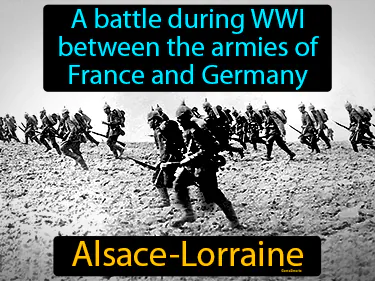
A battle during WWI between the armies of France and Germany. Alsace-Lorraine. Alsace-Lorraine is a historically contested region in Europe that has changed hands between France and Germany several times.
armistice
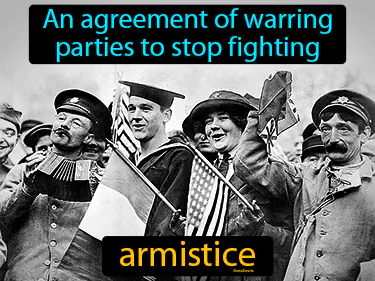
An agreement of warring parties to stop fighting. Armistice. An armistice is a temporary peace deal between enemies to halt combat, like the one ending World War I fighting on November 11, 1918.
atrocity
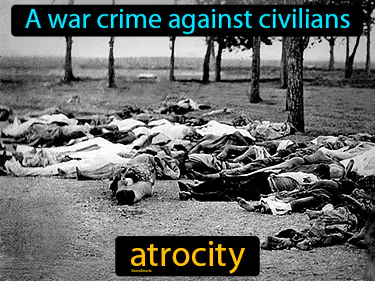
A war crime against civilians. Atrocity. An atrocity is a cruel and violent act, often occurring during conflicts or wars, where innocent people are harmed.
Cheka

The first of a succession of Soviet secret-police organizations. Cheka. Cheka was the Soviet Union's first secret police force, created to suppress opposition and maintain state security after the Russian Revolution.
collective security
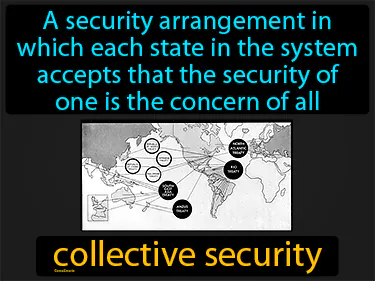
A security arrangement in which each state in the system accepts that the security of one is the concern of all. Collective security. In history, collective security refers to countries working together to prevent conflict by agreeing to defend each other against potential aggressors.
commissar
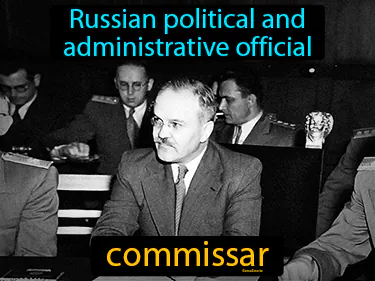
Russian political and administrative official. Commissar. A commissar was a Soviet official responsible for political education and loyalty within the military.
conscription
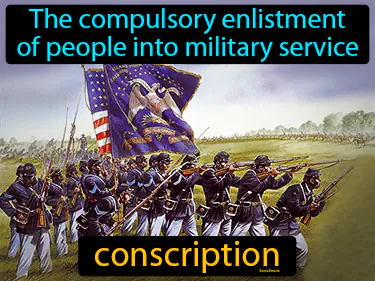
The compulsory enlistment of people into military service. Conscription. In history, conscription is when a government requires civilians to join the military, often used during wars.
contraband
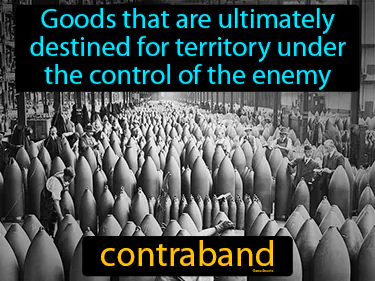
In war, weapons or goods that are going to the enemy are contraband. Contraband refers to illegal trade goods, especially ones banned during wartime to prevent them from reaching enemy forces.
convoy system
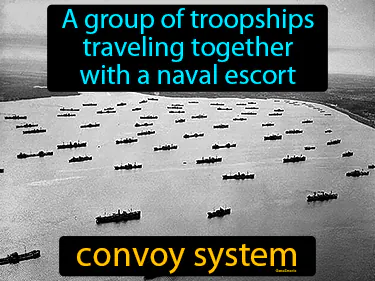
A group of troopships traveling together with a naval escort. Convoy system. The convoy system was a strategy used during wartime to protect merchant ships from enemy attacks by grouping them together with naval escorts for safety.
Dardanelles campaign
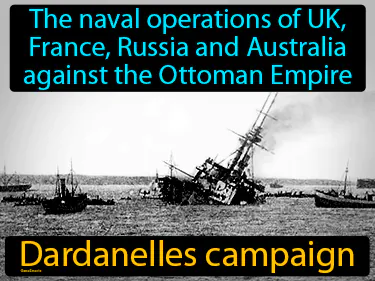
The naval operations of UK, France, Russia, and Australia against the Ottoman Empire. Dardanelles campaign. The Dardanelles campaign was a failed World War I military effort by the Allies to secure a sea route to Russia.
entente
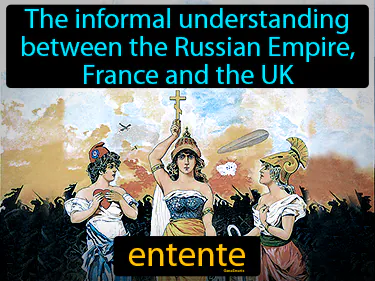
The informal understanding between the Russian Empire, France and the UK. entente. An entente is a friendly agreement or alliance between countries to cooperate on common interests.
Fourteen Points
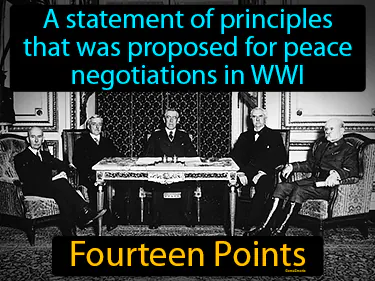
A statement of principles that was proposed for peace negotiations in WWI. Fourteen Points. The Fourteen Points was a plan by U.S. President Woodrow Wilson to establish lasting peace after World War I.
Lusitania
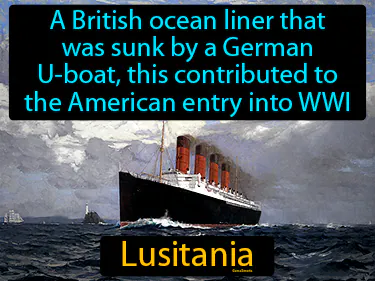
A British ocean liner that was sunk by a German U-boat, this contributed to the American entry into WWI. Lusitania. The Lusitania was a British passenger ship sunk by Germany in 1915, which helped push the U.S. into World War I.
mandate
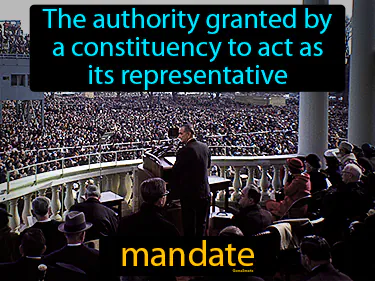
The authority granted by a constituency to act as its representative. Mandate. In history, a mandate refers to the authority given to a country by a group of nations to govern a region or territory.
militarism
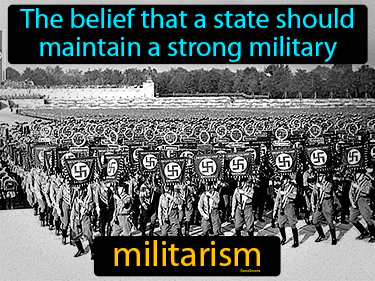
The belief that a state should maintain a strong military. Militarism. Militarism is the idea that having a powerful military is essential for national security and often influences political decisions and cultures.
mobilization
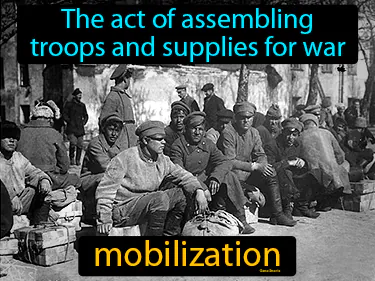
The act of assembling troops and supplies for war. Mobilization. Mobilization is the process of preparing and organizing a nations resources and military for war.
neutrality
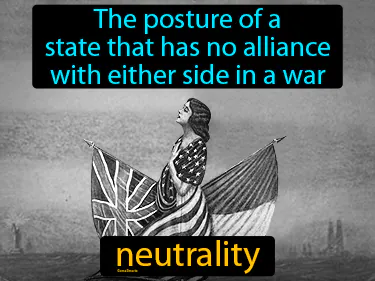
The posture of a state that has no alliance with either side in a war. Neutrality. In history, neutrality means a country deciding not to support any side in a conflict to avoid getting involved in the war.
pandemic
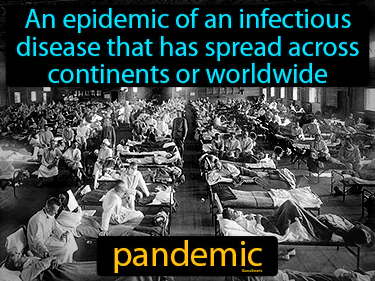
An epidemic of an infectious disease that has spread across continents or worldwide. Pandemic. A pandemic is a global outbreak of a disease that affects many people across countries and continents.
proletariat

The class of workers in urban areas who work in industry or manufacturing. Proletariat. In history, the proletariat refers to the working-class people who sell their labor for wages, especially during the industrial revolution.
propaganda
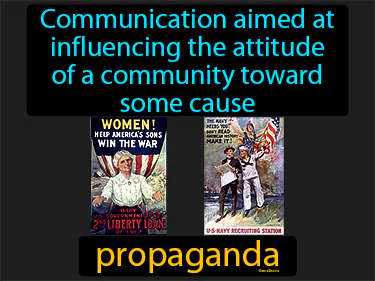
Communication aimed at influencing the attitude of a community toward some cause. Propaganda. In history, propaganda is often used by governments during wartime to shape public opinion and rally support.
radicals

A political group with intent of fundamental societal change. Radicals. Radicals are people who advocate for profound or revolutionary changes in society, often challenging traditional norms or systems.
reparations
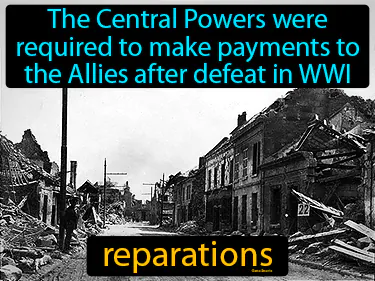
The Central Powers were required to make payments to the Allies after defeat in WWI. Reparations are payments made by a defeated country to cover the damage caused during a war.
self-determination
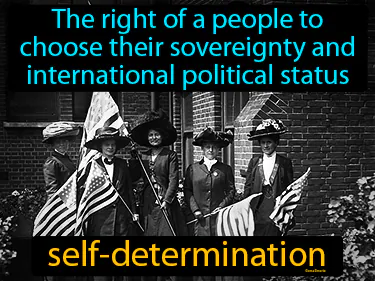
The right of a people to choose their sovereignty and international political status. Self-determination. In history, self-determination is when a group decides its own government and future, often after being a colony or under foreign rule.
soviet
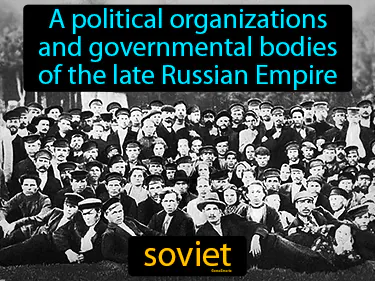
A political organization and governmental bodies of the late Russian Empire. Soviet. A soviet was a council or assembly representing workers and soldiers, playing a key role in the Russian Revolution.
stalemate
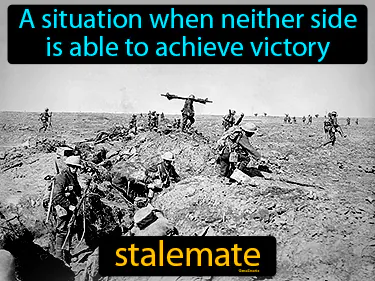
A situation when neither side is able to achieve victory. Stalemate. In History, a stalemate often refers to a deadlock in war where neither side can progress or win.
T E Lawrence
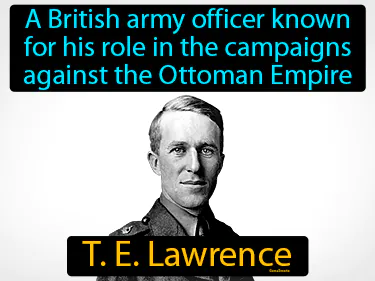
A British army officer known for his role in the campaigns against the Ottoman Empire. T E Lawrence. He was a key figure in rallying Arab tribes to support the British during World War I.
total war
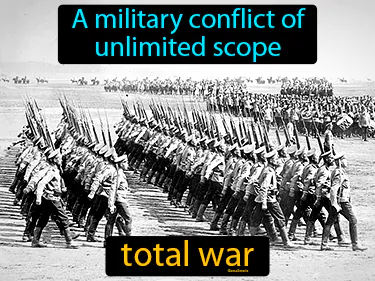
A military conflict of unlimited scope. Total war. Total war is when a country uses all its resources and people to fight an enemy, impacting both soldiers and civilians.
U-boat
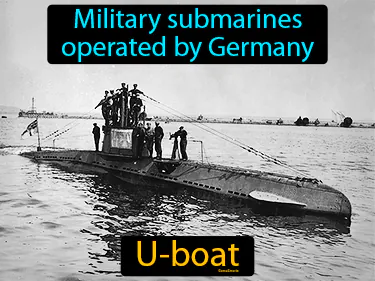
Military submarines operated by Germany. U-boat. U-boats were German submarines used during both World War I and World War II.
ultimatum
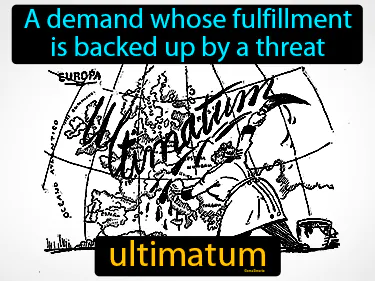
A demand whose fulfillment is backed up by a threat. Ultimatum. In history, an ultimatum is a final set of demands made during negotiations, often preceding conflict if not met.
zeppelin
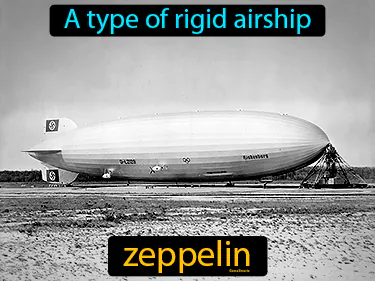
A type of rigid airship. Zeppelin. A zeppelin is a large, cigar-shaped airship that was used for passenger travel and military purposes in the early 20th century.